This is merely describing why I am a vegetarian-pescatarian and is not meant to be prescriptive towards others.
As you know, this food blog is written from the perspective of a self-identified “vegetarian-pescatarian”. What is a vegetarian-pescatarian? Someone who eats fish and seafood, but no land meat like chicken, beef, pork, turkey, lamb, etc. Why would one willfully choose to eat like this? Well, let me tell you a little bit about my journey towards being a vegetarian-pescatarian…
When I was 17, my mom adopted our first dog. Prior to then, I barely had any interactions with animals growing up in the suburbs of Chicago. Animals were unknown and kind of scary to me. When I got to know our dog more, I fell in love with her. Her name was Athena and she embodied this Greek goddess of wisdom. She was quick, intelligent, and loyal. When I looked into her eyes, there was something deep and unexplainable. She wasn’t a “stupid” animal who lacked self-awareness. She seemed self-aware and learned very quickly. I started to love dogs and got to know them more as a species. Athena opened up my world to how animals were complex beings with sentience.

Sentience – the ability to feel pain and pleasure – the foundational reason for my vegetarianism. I realized that dogs were not that different from farm animals. It was just a cultural norm to treat them differently from other animals but the only distinction between dogs and other animals is that they are “cute”, whereas we are socialized to perceive farm animals as inferior objects that will appear on our plates. I realized how speciesist we are as a society privileging one species over other species without any legitimate basis for this (e.g. dogs are not more intelligent than pigs), and I saw the connections between speciesism, sexism, racism, and classism.

Now someone could argue that we as human beings have a more complex cerebral cortex, and that means we can exercise dominion over other animals. But animals have abilities that we do not have such as the ability to smell acutely or run fast. Who is to say which characteristic is more valuable than the other? It is completely arbitrary. Of course we are biased about our abilities as human beings – completely self-serving. But we cannot compare ourselves to other animals objectively because we are indeed animals ourselves.

There are also religious arguments given for eating meat such as exercising dominion over animals. I don’t buy this. Let’s say humans are superior and have greater abilities than non-human animals, that means that we have greater responsibilities to these animals. That does not mean we get to use this belief to justify our oppression of animals. Think about it this way, children are less developed than adults, but it is unacceptable to eat, slaughter, or torture children. Why would it be okay to do this to mammals whose brains are not that different from children’s brains? Wouldn’t a religious perspective lead us to see ourselves as stewards of this Earth, which means we as humans have a responsibility to positively impact animals (“God’s creatures”) and the environment? Under this stewardship idea, we need to manage the earth’s resources in a sustainable way. The factory-farming industry is a violation of stewardship ideals since we are completely mismanaging our resources and not taking any responsibility for the damage we have incurred as a species.
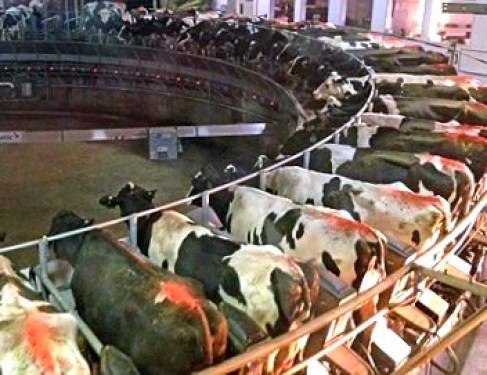
I had also read a book called, The Sexual Politics of Meat by Carol J. Adams that compared the objectification of animals to women. This book definitely influenced me to understand the intersectional oppression between women and animals. The ways in which we objectify women in our society by calling them “a hot piece of ass” or reducing them to their breasts or butt is similar to how we speak about animals by saying things like “chicken breast” or “drumstick” instead of a chicken’s breast or chicken’s leg. Our language does not allow animals to possess their body parts in the same way women are deprived of ownership over their bodies in a patriarchal society. I knew that I could not be someone who championed feminism while simultaneously contributing to the despicable factory farming industry. I first phased out red meat. It was unhealthy (see countless studies about the connections between the consumption of red meat and heart disease, high cholesterol, and diabetes) for one and I knew cows had a lot more going for them than what we gave them credit for. It wasn’t really hard for me to stop eating red meat. I didn’t like steak or burgers that much so why eat them?

I had wanted to be a vegetarian at that point too, but it was too difficult living under my parents’ roof where meat was served with our dinners most of the time. When I was a freshman in college living in the dorms, I finally had the autonomy to choose what I ate even though I was a broke college student. At this point I had seen those harrowing videos showcasing the horrors of factory farming – chickens having their heads cut off, cancerous tumors growing on cows, and crammed pigs in little cages. No animal is excited to live in these conditions and be walked to the slaughterhouse. While we lack the ability to understand what these animals are going through mentally, it does not mean that they do not feel anything. It has been scientifically proven that they can feel pain and pleasure, and factory-farming is an oppressive industry that causes great, unnecessary suffering to animals. I had also been immersed in researching the dangers of the dairy industry with respect to what exists in cow’s milk. It is unnatural that we are the only species to drink milk beyond infancy. I also read about how unhealthy dairy was: it is correlated with thickening mucous, being high in fat and cholesterol, and making our stomachs bulge.

At 19, I was ready to practice full veganism. I stopped eating all meat, fish, seafood, dairy, and eggs. I felt lighter and got fewer colds, but unfortunately became too thin and anemic (prior to my veganism I had issues with anemia and had always been on the thinner side). After two years of veganism, I decided to allow myself to slowly eat dairy and seafood/fish again. While veganism can work if you do it right, it was hard for me to do it as a broke college student facing these health issues and not really having the time to cook because I was working two jobs and taking an 18 hour credit load in Milwaukee (land of brats and cheese). I still continued to be a vegetarian, which was not difficult at all.
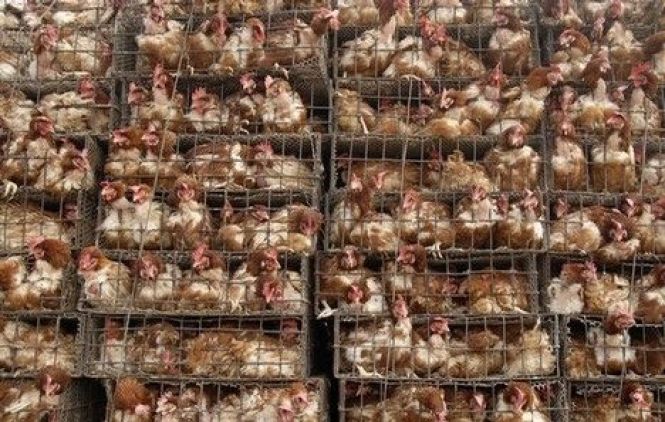
11 years later, I am a proud vegetarian-pescatarian living in Chicago. I drink Almond milk, cook with Earthly balance soy butter, refuse to purchase half n’half, whipped cream, sour cream, ranch, etc. The only dairy that I allow myself to eat within moderation is cheese. I try to buy cheese from local farms or Trader Joe’s to at least make myself feel better ethically. But I mainly try to eat vegan during the weekdays. I don’t purchase fish or seafood for cooking but I do let myself have it while eating out (e.g. oysters, mussels, sushi, etc.).
Now that you know my journey, I can explain my reasoning for my diet and why I believe it is a good balance of ethical and healthy. The reasons for my diet are listed in the following order: animal rights, environmentalism, and health.
Animal Rights:
As a philosopher who teaches ethics, I think deeply about my day-to-day decisions in terms of how they impact the greater society. I try to live in a way that does not perpetuate harm against other beings and try to be consistent and universal about my actions. But my consideration of this impact is not anthropocentric and limited to humans. I consider my impact on animals. Why? Because they should be given moral consideration. Even if they do not have the ability to be moral agents (because their rationality has not been proven), they are moral patients, meaning that we, as moral agents have the duty to consider and not inflict unnecessary harm upon these moral patients (MacIntyre “Puppies, Pigs, and People”). This is similar to how we organize our society around the notion that adults are moral agents and children are moral patients. It is believed children have less rational abilities than adults, yet there are laws against their exploitation and slaughter.

Given the context that most of us in the U.S. live in a wealthy, developed nation where we do not have to hunt, fish, etc. to survive and we can get protein from plant-based sources, eating meat is not a necessity for survival (I’ll talk about the health stuff later). We do not need to eat meat to live (I am speaking from the perspective of people who are generally healthy and do not have food allergies). And once we have reached adulthood, we do not really need to be so obsessed with protein to the degree that we are as Americans because we are not trying to grow. There is definitely an obsession with protein in our culture and there is an overestimation of how much we actually need.
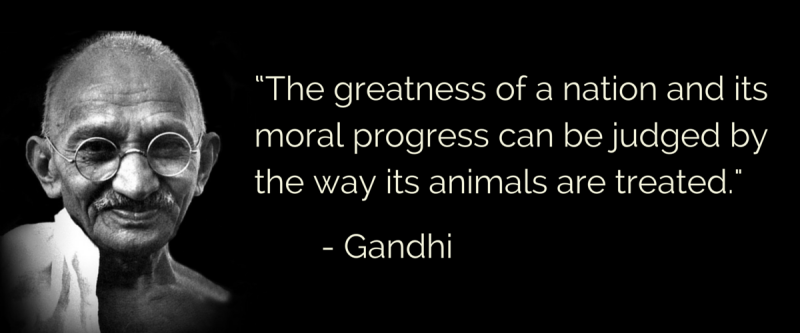
Preferring the taste of animals is a mere desire which should not trump the survival of animals and cause them unnecessary suffering. Preference is far less important than survival. Since I believe animals are sentient, I do not want to consume them and eat their flesh. Adding the dimension of industrial factory-farming in the U.S. where animals are tortured and treated like inanimate objects made it unethical for me to continue to eat meat. Cows, chickens, pigs, etc. are injected with growth hormones to make them bigger and produce more milk (for cows). Chickens that are crammed in small cages become aggressive and start to fight each other, and pigs (pretty intelligent animals) are exposed to their own feces. These are not only unsanitary and unhealthy conditions, but they would drive anyone crazy. A baby cow is taken away from his mother and the mother tries to prevent this separation, which is indicated by her crying and looking over at her child. Why would I want to put my money towards a system that objectively tortures animals. Why would I want to eat this pain? There is no rational reason that I have to keep eating mammals.
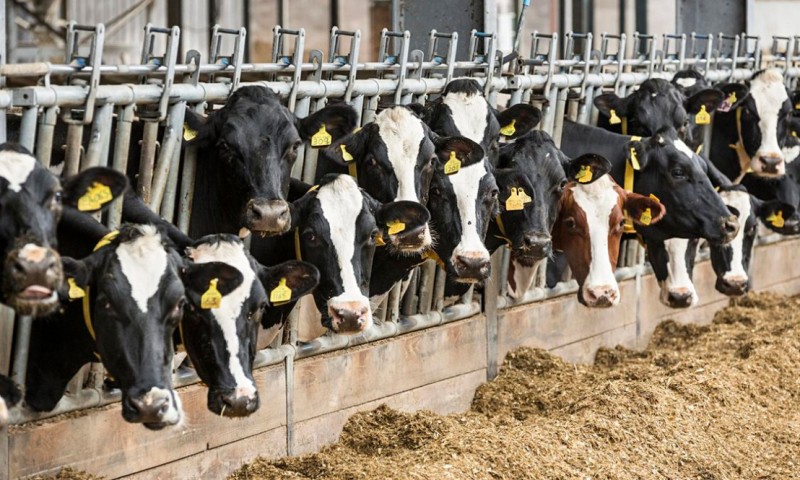
I could not enjoy the taste of meat knowing what they endured to get on my plate and in my mouth. Now I could hypothetically eat “free-range” “organic” meat, but we all know those labels are fictitious and advertising is one of the most unethical industries out there. They aren’t held to any ethical standards like most industries are in the U.S.. It has been proven that these labels don’t mean much. “Free-range” can still mean caged, but these animals just have a little bit more space. Now you might ask, what if the factory-farming industry were to magically be dismantled? Would you start eating meat? No, I wouldn’t because I don’t want to eat sentient beings. It still is unethical for me, yet less unethical than eating animals that have been tortured through factory-farming.

Now you might be thinking, what about fish? What about seafood? Aren’t they sentient beings? Fish and seafood have not been found to be sentient and do not have the same degree of sentience as exhibited by their brain structure or lack of it. They are classified as “other” to animals by scientists. I still believe in not unnecessarily harming fish and seafood, which calls for ethical fishing, but I do not have a strong moral duty towards them because they cannot feel pain and pleasure and are not self-aware. However, as I discuss in the following section, I still try to not eat them when I am at home and am in complete control with many options.
Environmentalism:
I’ll be honest, I have been zoo-centric as a moral agent. I have primarily considered animals and nothing else. I have not taken other living beings like plants, trees, etc. into consideration because they are not sentient. But the reality of climate change has basically woken me up from my slumber. Seeing the escalating reality of climate change unfold throughout my lifetime (experiencing more drastic climates, seeing more hurricanes, earthquakes, and other disasters happen such as the melting of glaciers, rising sea levels, and the near extinction of certain fish species), I needed to start understanding the impact my choices were having upon the environment.

Part of being an environmentalist is striving to decrease your ecological footprint. Factors that impact your ecological footprint have to do with the release of Methane and CO2, what we eat, how much we eat, our means of transportation, our use of electricity and water. What is the largest contributor to climate change in this country?
Surprisingly, cars and trucks are not the largest contributor (I was mistaken for a while)–the methane released by cows in the factory farming industry are. Methane is a far more potent gas then carbon dioxide. So in order to decrease my ecological footprint in the most meaningful way, I had to distance myself from eating cows. The factory farming industry releases high amounts of methane into the air, pollutes the air and water by releasing animal feces into the water, and ultimately makes it unlivable for surrounding communities which tend to be predominantly poorer communities of color. I started to see the intersectional oppression between the exploitation of the environment and vulnerable communities. The people who have been the most negatively impacted by climate change today have been people in poorer island nations and impoverished people in the U.S. The price of air and water contamination is paid by poorer communities of color in urban areas (think about how lower-income communities situated close to highways higher rates of asthma/lung problems and think about the Flint water crisis). This reality cannot be ignored. Ultimately, vegetarianism seems to be the most ethical diet given the reality of climate change and the nefarious factory farming industry.

What about fish and seafood? Aren’t there environmental problems associated with tuna? Isn’t tuna potentially becoming extinct? Yes, tuna is on the brink of extinction due to overfishing (we sure love our sushi). I do not believe it is environmentally beneficial to consume fish. Eating fish when I eat out is something I ethically struggle with because even though they are not sentient, it is not beneficial for the environment given the increased popularity of aquaculture (fish farming). Fish farming can increase pollution in the ocean, which is obviously terrible for the environment. But they are the most eco-friendly source of animal protein and they don’t release anywhere near the same amount of greenhouse gases as cows do. Seafood seems like it is a grey area. I have not read anything about the negative impacts of the environment when it comes to eating seafood. Since they are lower on the food chain and convert into food very easily, it seems as if their consumption is not terrible for the environment.

Health Reasons:
As I prefaced earlier, the positive health claims made about vegetarianism apply to most healthy adults so I understand that there are special health conditions people have calling for different types of diets. I have already discussed the health problems that are associated with consuming red meat and higher fat diets: heart disease, higher cholesterol, diabetes, and obesity. America is a melting pot of these health problems. These problems can also happen with eating poultry as well, but chicken and turkey tend to be leaner. It is well-known that vegetarians have lower cholesterol and are at a lower risk for heart disease. We also have healthy gastrointestinal systems because we have regular bowel movements and aren’t constipated like some meat-eaters can be. I know it’s gross to talk about poop, but it’s an aspect of our daily lives (hopefully daily). I personally feel great as a vegetarian-pescatarian. I don’t feel tired but I also don’t feel heavy and stuffed to the point that I am going to die after I am done eating.
This is where the pescatarianism comes in. I am sure you have heard of the Mediterranean diet. It has been cited numerous times as one of the most healthy diets. A primarily plant-based diet focused on consuming healthy fats such as olive oil and lean sources of protein such as fish. Fish and seafood are thought to be healthy sources of lean protein. Now when I talk about fish being healthy, I am only referring to non-farmed fish. Farmed fish is contaminated with a plethora of hormones and antibiotics that are harmful for fish and for human beings. They can be a site for diseases. The fact that fish and seafood are healthy sources of protein and omega 3 fatty acids are why I allow myself to eat it at restaurants. It also has been my saving grace when I am traveling all over the world and there is no vegetarian option sometimes.

And finally: How is Vegetarianism Affordable?
Eating a plant-based diet is not bourgeois. If you are a true vegetarian, it is actually cheaper when you are buying groceries. I started being a vegan when I was the poorest in my life, a 19 year old college student. I would make a garbanzo bean salad with couscous that was cheap and abundant to make. I would also make eggplant pitas with hummus and spinach for dinner. Necessity breeds creativity. As long as you know how to use spices like paprika, cumin, chili powder, etc. you will be fine. Vegetables (not organic here – that’s a whole other issue) are cheaper than meat and they are a healthier source of calcium. Beans are cheaper than meat and they are a healthier source of protein.
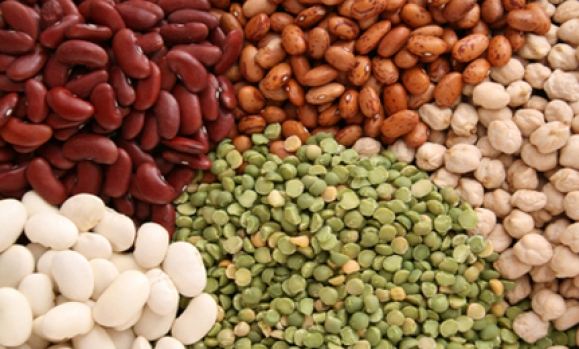
Unfortunately, the factory-farming industry which holds sway in Congress would like us to think that vegetarianism is expensive and unhealthy when in fact it is cheaper and healthier. You don’t have to shop at Whole Foods to be a vegetarian. You can be a vegetarian and shop at Jewel or Kroger. What gets expensive is when you start buying meat and cheese alternatives, but you do not need these to eat a plant-based diet. Tofu is a meat alternative and is not expensive at $2-3 per container (which yields many meals). Trader Joe’s has an excellent soyrizo for $1.99 (also yielding many meals). Beans cost about $1 a can. Leafy greens rich in calcium and protein like kale and spinach can cost around $2-3 per pound. Eating hummus all day at work with carrots and radishes is far cheaper than eating a chicken sandwich.

So now you know why I am a vegetarian-pescatarian. My reasons can be attributed to sentience, environmentalism, and health. These ethical and health reasons are why I am very passionate about eating as a vegetarian-pescatarian and I bring these concerns when I eat out because being a foodie and vegetarian should not conflict with one another. And no, I don’t miss the taste of bacon!
Recent Comments